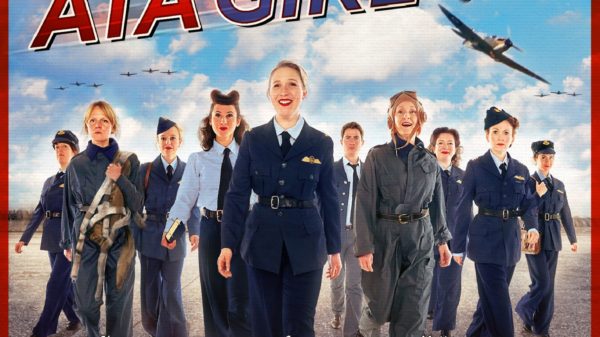As part of their twentieth anniversary, Big Finish has commissioned a range of new drama, the first of which to be released is ATA Girl. It’s set in World War II, and is the creation of Louise Jameson (Doctor Who, Tenko, Eastenders, Doc Martin) who also directs.
During World War II, the Air Transport Auxiliary (ATA) had the task of transporting aircraft from factories to squadrons, in all weather, and often without radio, instruments or protection from friendly fire. This group included 168 female pilots from all backgrounds, and this set of four stories gives some insight into the role these women played and the recent history of Britain in terms of the evolution of the role of women in society.
As might be expected, the cast is mainly female, and the four stories are also written by female writers (Gemma Page, Victoria Saxton, Helen Goldwyn and Jane Slavin, with all but Victoria also acting in the stories). The stories are also very much written for an adult audience, the stories look at many aspects of the life of women in the 1940s, and two of the stories have several intense scenes, one of which is particularly harrowing.
The stories are connected in terms of the context, and as reminiscences of a fictional former ATA pilot Amelia Curtis (Alicia Ambrose-Bayly). While flying is at the heart of the world of ATA Girls, this set concerns itself more with exploring the consequences (and limitations) of the new-found freedom these pilots had and their relationships both with each other and various men. At times it could have become polemic but the characters on the four stories have well-textured lives and face difficult decisions. There are plenty of tropes of World War II stories, including excessive partying, extra-marital relationships brought on by separation, air raids and more. What this isn’t is an analysis of the causes of war and its direct effects on those involved, but a chance to understand what it meant for those suddenly able to have a meaningful job and recognition, even if to many of the men at the time they were still second-class citizens at best.
The four stories blend light and dark, and avoid the trap of over-glamorising the pilots, or understating how much more was (and still is) left before women gain full equality in Britain. The large cast runs across all the set, with most playing multiple roles. At times the listener may lose a sense of just who is who between stories, but that is a minor note. The sound work is immaculate, with a blend of music, atmosphere and the inevitable aircraft effects all playing together well.
It’s a compelling collection that will linger in the mind of the listener for some time. An excellent achievement from all those involved.
![]()

